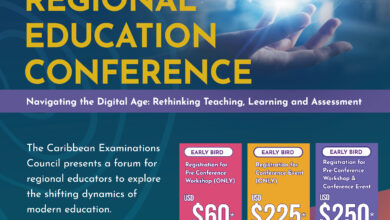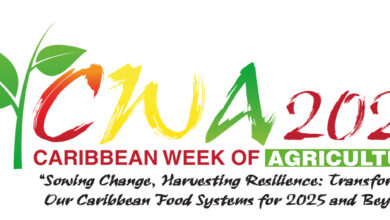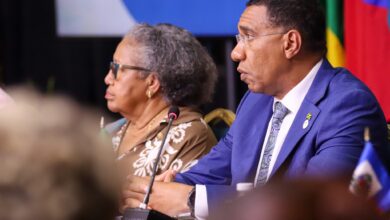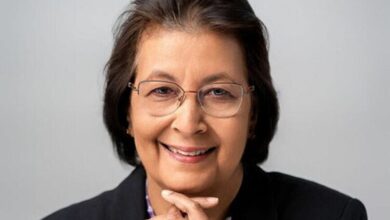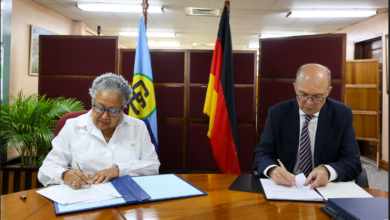It has become a ritual for new Heads of Government in their maiden presentation at CARICOM Summits to chastise the sitting heads for converting our meetings into a “talk shop”. However, they themselves are accused later of joining the “club”.
But are the Heads really to blame when progress on some critical issues is not fast enough? Is it a case that our Heads are moving only as fast as their individual societies will allow them? While we can point to areas of shortcomings and instances of lack of political will, we must nevertheless re-examine these questions before we stand in judgement of each other, or castigate CARICOM as a collective.
My own view is that integration will go forward as fast as CARICOM constituent members and their people will allow it to.
Let me give you an example. Free movement of people is essential to meaningful integration, and the Single Market and Economy. But politicians who have to focus on their electoral fortunes, cannot easily ignore the way their constituents feel about this matter. Within some member states, people fear that free movement will cost them their jobs and affect their well-being. Besides, sections of national media routinely stoke insecurity among local inhabitants.
Another example is that while everyone agrees that a Caribbean Court of Justice is a pre-requisite for the Single Market and Economy, there is an organised lobby against the establishment of this court in some countries. Should those Heads ignore this lobby?
Caribbean leaders will make decisions and implement them expeditiously if they feel that they have the support of their people.
This is the time to forge broad partnership among our people, the media and the various interest groups.
It may sound strange, but it is true that after more than four decades of efforts at integration people still need to be convinced that this process has benefits for them.
In this regard, a focus at this Summit on a Civil Society Encounter, to be held next year, is a positive step.
Mr. Chairman, Having said that, let me say that I have come to this Summit with some issues on my mind.
Permit me, Mr. Chairman, to speak about them.
There is a worrying trend today in our Caribbean region which traditionally has been known for stable democracies and respect for the rule of law. But this democracy, this rule of law, is on trial.
In Guyana, following fresh elections, our hard-won democracy came under threat. After a CARICOM intervention, the life of the popularly elected government was shortened under the Herdmanston Accord. This Accord required both the ruling and opposition parties to accept the findings of a CARICOM audit of the results of the elections. However, the main opposition party repudiated the findings of the audit.
Let me make it clear: my government has abided with, and will continue to honour, the terms of the Hermandston Accord. But for its full implementation in the interest of all of our people, it requires bi-partisan commitment and cooperation.
I do not know all the circumstances of the situation in St. Vincent and the Grenadines, but I am reminded of the travail of my own country when I learned that the life of the elected government was shortened.
From these recent forrays into conflict resolution in our region, we should draw two lessons :
(1) Under agreements brokered by CARICOM, all parties should assume their responsibilities. Unequal burden must not be placed on elected governments to unilaterally discharge obligations under any such agreement;
(2) This body cannot and must not be seen as either supporting extra-parliamentary stratagems to eclipse the term of elected governments, or consecrating new forms of removal of governments outside the ballot box!
The other issue on my mind concerns the attitude of our states and their mode of behaviour towards each other.
Since its establishment our Community has maintained a principled stand for the peaceful settlement of disputes. As an original signatory of the Treaty of Chaguaramas, Guyana remains committed to this cardinal principle of the Caribbean Community. In this regard it must be noted that the Caribbean Community has consistently expressed its unremitting support for the territorial integrity of Guyana.
Unfortunately, a current problem that has arisen between two sister states and neighbours, Guyana and Suriname, poses a threat to what had become the acceptable behaviour among CARICOM members. I have strong views on this matter but I will not use this opening ceremony to gain any advantage for Guyana against its CARICOM colleague.
What I wish to say, however, is this: As countries that have been disadvantaged for centuries, we can ill afford postures and incidents that divert our focus and resources. We should not waste opportunities that could yield economic benefits for our long suffering peoples. The use of force to resolve disputes in the Caribbean is unacceptable.
Mr. Chairman,
The third issue on my mind concerns the state of intra-regional trade. I am disappointed that while we are expending much energy and resources in negotiating extra regional trade arrangements – and this I daresay is absolutely crucial – our regional producers continue to face market access problems intra-regionally.
What credibility or moral ground will our negotiators have when they argue for the maintenance of preferential regimes and the removal of market barriers for Caribbean products overseas if we continue to erect these barriers inside our own region? Mr. Chairman, these ugly practices must cease if we are sincere and serious about Caribbean integration and the establishment of a Single Market and Economy.
The fourth issue on my mind concerns the fate and future of our young people. Our young people must be seen as key stakeholders in the development of our region. They must be actively involved and empowered to become partners in development. For this to happen, our education system must give them life-skills that will allow them to succeed in the digital economy.
Besides education, our young people must have an affinity with our rich and untapped resources. They must feel that they could share in all that the Caribbean possesses. To realise this, we must break the walls of insularity. We must develop and promote among our young people a common claim to our Caribbean – all of it. If we do, they will not look to North America as their Mecca in fulfillment of their dreams.
Mr. Chairman, the ten minutes available to me does not permit me to address the full gamut of issues that has been engaging our attention.
The challenges facing developing countries, including our region, have been eloquently dealt with at major international conferences. The recent South Summit, the UN Secretary General Report to the Millennium Assembly and the Small States report have confirmed what we in this region always knew, that is, that it will be increasingly difficult for developing countries in the future.
Our task as leaders is to ensure that the Caribbean has a place in the global economy. Already much work has been done, and the tasks ahead have been clearly defined.
However, while we keep the big picture before us and implement, with conviction, the many regional programmes that we have worked out, our focus must remain a simple one. It is a recognition that our people are the most important. Their interest and well being come first. It is about giving them a good education that is relevant to today’s world; it is about finding jobs for them; it is about working every day to make their lives better.
Mr. Chairman,
In conclusion, let me reaffirm my country’s position on a few matters before us on CARICOM’s Agenda:
- Guyana supports the early establishment of a Single Market and Economy;
- We stand firmly in support of an early establishment of the Caribbean Court of Justice;
- We support free movement of people within the region;
- We support the free movement of capital and goods;
- We support the Charter for Civil Society.
Mr. Chairman,
May I take this opportunity to thank the Honourable Prime Minister of St. Vincent and the Grenadines, for being such a gracious host.
We must do what is expected of us: offer our people a vision of hope and provide effective leadership.
I thank you.

